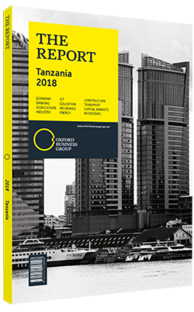Godfrey Simbeye, Executive Director, Tanzania Private Sector Foundation (TPSF): Interview

Interview: Godfrey Simbeye, Executive Director, Tanzania Private Sector Foundation (TPSF)
What is the greatest challenge facing the private sector in Tanzania?
GODFREY SIMBEYE: When you talk about the private sector in Tanzania, there are two categories — the foreign private sector and the local private sector. For the local private sector, the single biggest challenge is access to finance. Meeting with CEOs of foreign companies, TPSF has found they do not share this issue, because they can refinance and obtain funds from anywhere in the world. In Tanzania, local investors rely on commercial banks, which have funds available, but claim they do not have borrowers. The reason: borrowing costs are high and access to credit is difficult for local investors hoping to finance their projects. Investors from the local private sector must submit feasibility studies to commercial banks in order to qualify for loans. This can be challenging. We have also seen that after 10 years in existence, most of the start-ups in Tanzania dissolve due to the inability to continue financing their operations. One thing that must happen to encourage investment in the private sector is a continuing focus on the financial and capital markets. If this country is to become an industrial economy, the establishment of an industrial development bank is needed. For example, the creation of the Tanzania Agricultural Development Bank made borrowing rates much more affordable. An additional step would be to have the major pension funds set up an initiative where they would invest directly into industry, as directed by President John Magufuli. This would make them relevant for the private sector.
How can the private sector play a role in industrialisation and economic development?
SIMBEYE: In the early 1990s Tanzania declared that it would shift from being a socialist country and adopt a free-market economy driven by the private sector. In 1998 TPSF was established, reinforcing the notion that a strong private sector is necessary. The role of the sector is large and should allow for investment into the industrial economy, to establish industries that can stand on their own. President Magufuli stated that by 2020, 45% of all job creation should be from industry, which requires investment from the private sector.
Which challenges and opportunities are present in Tanzania’s current investment environment?
SIMBEYE: One obstacle that is present not only in Tanzania, but in all of Africa, is the lack of purchasing power. The lack of roads, infrastructure, logistics and open borders deter inter-African trade. Because of its size, the continent overly relies on transcontinental imports. Another challenge within Tanzania’s market is that 60% of the population is under 18 years old. This leaves a pool of around 21m citizens for the labour force, which equates to 4m employees in the formal private sector and 2m people working for the government. The remaining two-thirds are employed within the informal sector. The kinds of industries that Tanzania wants to create remain costly. One measure TPSF is lobbying hard for is the reduction of the cost of doing business, such as within the textiles industry. Tanzania does have a competitive advantage in the agricultural sector and rural communities, not only because of the sheer number of people employed but also regarding the low cost to which smallholder farms have been able to get products to market.
How would you rate the dialogue between the private sector and the government?
SIMBEYE: There is optimism that future talks with this administration will cement a long-lasting relationship between the public and private sectors. The outcomes of future dialogues will of course be very important, and we expect them to be positive.
You have reached the limit of premium articles you can view for free.
Choose from the options below to purchase print or digital editions of our Reports. You can also purchase a website subscription giving you unlimited access to all of our Reports online for 12 months.
If you have already purchased this Report or have a website subscription, please login to continue.

